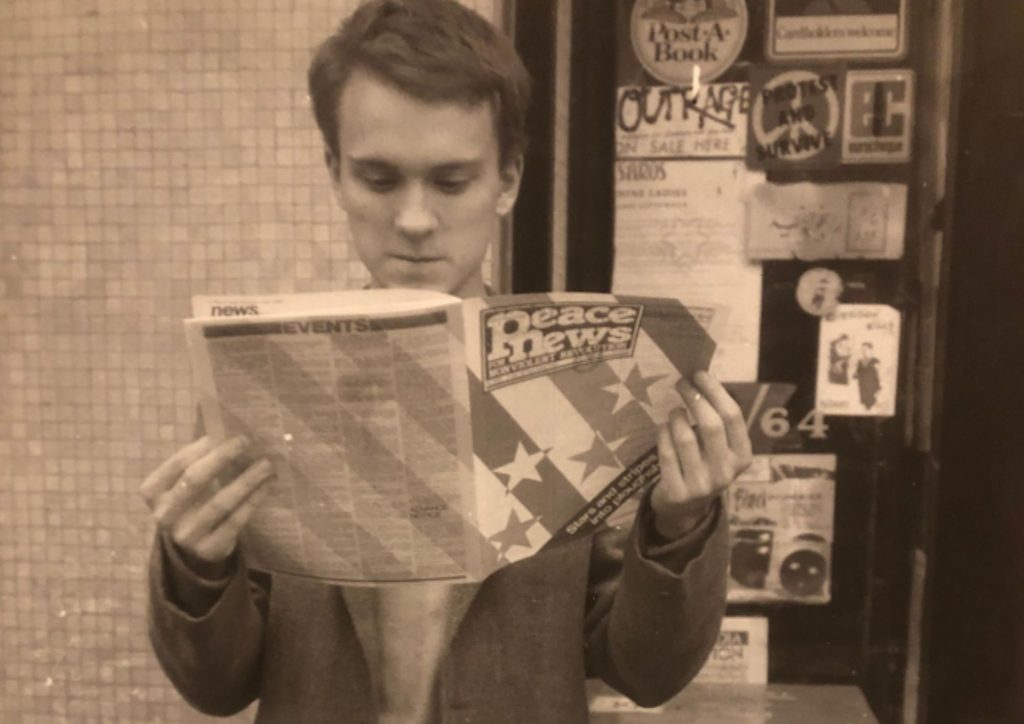The ‘spy cop’ and the fur coat bomb: Undercover police inquiry told of Debenhams explosion
Who worked on plot to bomb Debenhams?
Monday, 18th November 2024 — By Tom Foot

Bob Lambert
WATCH OUR POLITICS CHANNEL, PEEPS, ON YOUTUBE
THE “Spy Cops” inquiry heard allegations this week of a cover-up after an undercover detective planted a “bomb” in a department store.
Bob Lambert has admitted infiltrating a series of north London environmental, pacifist and animal rights groups in the 1980s.
But he has previously denied placing the “improvised incendiary device”(IID) which went off in the Harrow branch of Debenhams in 1987.
It was one of three stores targeted in fire-bombings by the Animal Liberation Front (ALF) which was taking direct action against the fur trade.
The blast caused an estimated £4million of fire damage and a further £4.5million in trading losses to the retail firm, which stopped selling fur in the week after.
The incident has been part of discussion this week at the ongoing Undercover Police Inquiry, commissioned by the government and probing whether members of Scotland Yard’s Special Demonstration Service (SDS) had gone too far in their roles.
A joint witness statement to the inquiry from a group of 12 activists – some are from Camden and Islington – said Mr Lambert was “intimately involved in the planning and carrying out this action, including planting the IID in the Harrow store”.
Two activists were convicted at the time but, the statement said information about Mr Lambert’s alleged role was concealed from the original criminal court case and CCTV evidence mysteriously disappeared, the witness statement said.
The group is calling on the inquiry to “fully investigate the role Bob Lambert played in these offences and refer any related convictions to the miscarriage of justice panel”.

Paul Gravett at Peace News has given evidence to the inquiry
The SDS was an undercover branch of the Met initially set up to stop disorder and violent protests. Lambert operated under the code name Mark Robinson and has been criticised for fathering a child with one of the campaigners he was spying on.
In a previous statement to the Guardian newspaper, Mr Lambert said: “It was necessary to create the false impression that I was a committed animal rights extremist to gain intelligence so as to disrupt serious criminal conspiracies.
“However, I did not commit serious crime such as ‘planting an incendiary device at the [Debenhams] Harrow store’.”
The dozens of activists to sign the joint witness statement making the allegation include Albert Beale, who was spied on by Mr Lambert over several years while working for London Greenpeace and Peace News in Caledonian Road, King’s Cross.
Paul Gravett, who was with the ALF and lived in Caledonian Road, is also one of the signatories, along with the McLibel campaigner Helen Steel.
The rules of the inquiry state that none of the witnesses – called core participants – can be charged with crimes admitted to in their statements.
Mr Gravett’s evidence said: “Lambert was a very credible spy. I never doubted he was an activist and no one else I knew did either. It was pleasing being in his company and he could be charming. I was a young man when I met him and he was like an elder brother. I looked up to him and respected him. Looking back I realise there was an element of grooming in our friendship.”
In a later statement he added that Mr Lambert “was very focused on economic sabotage rather than trying to liberate actual animals”, adding: “He produced a leaflet which referred to causing economic damage to animal abusers.”
The joint statement alleges Mr Lambert was present at several preparation meeting before the attack on the Debenhams store – which was carried out at night to avoid any human injury.
SDS intelligence provided by Bob Lambert brought about the arrests of two men he had been spying on, Andrew Clarke and Geoff Sheppard.
But the group of campaigners are asking why the SDS reports filed with the inquiry do not reflect Mr Lambert’s role as they remember it.
The witnesses are represented by Camden law firm Hodge Jones and Allen and barristers from Doughty Street Chambers and Garden Court.
Their statement concludes: “The SDS was a unit, within a state establishment, that was incapable of properly balancing the civil and democratic rights of individuals against a desire for unlimited intelligence capture. It should not have existed, and, more importantly, those in power should never have enabled it.”
It adds: “The tactics deployed by the SDS as set out above, were abhorrent and unjustifiable.”
The Undercover Policing Inquiry is already the longest and most expensive in British history – and is probing the work of dozens of officers sent undercover to “infiltrate” left-wing organisations over four decades.
The New Journal reported earlier this year about how an SDS officer had used the name of a dead child as cover during four years as a “trusted” organiser with the Hampstead branch of CND (the Campaign for Nuclear Disarmament). He led a double life while living in a “safe house” in West Hampstead.
